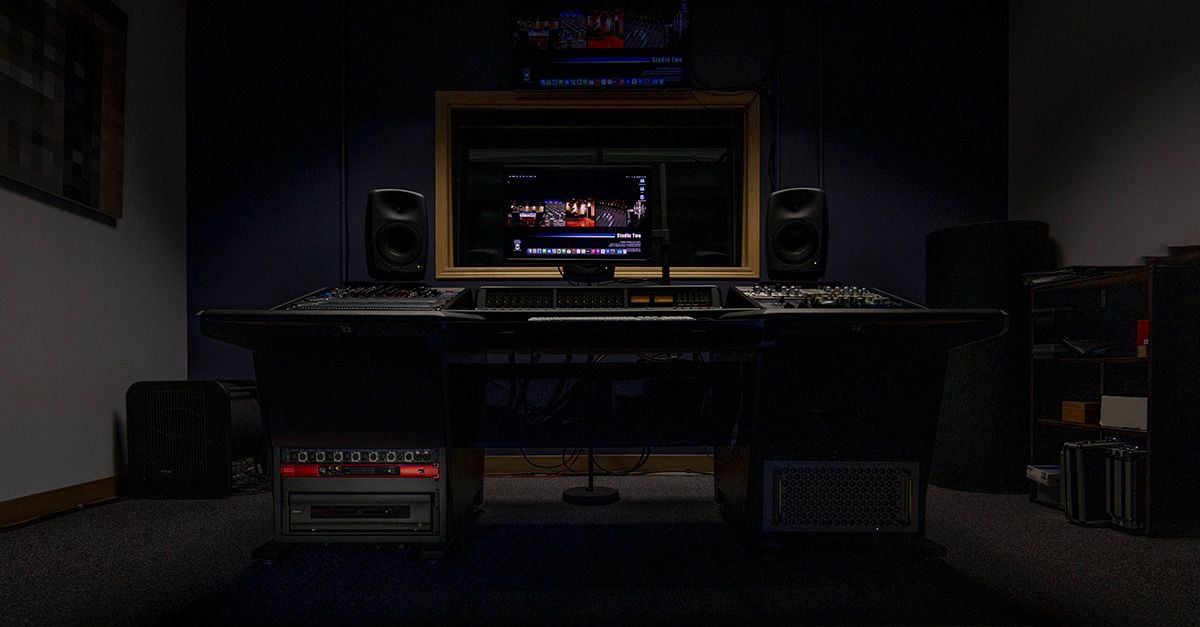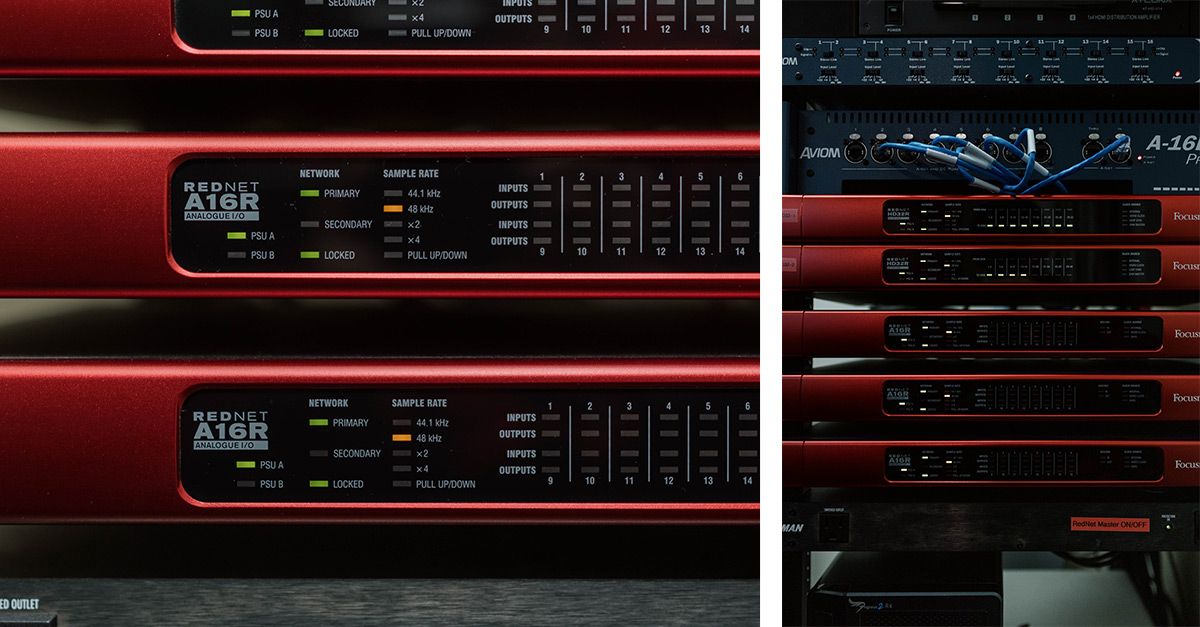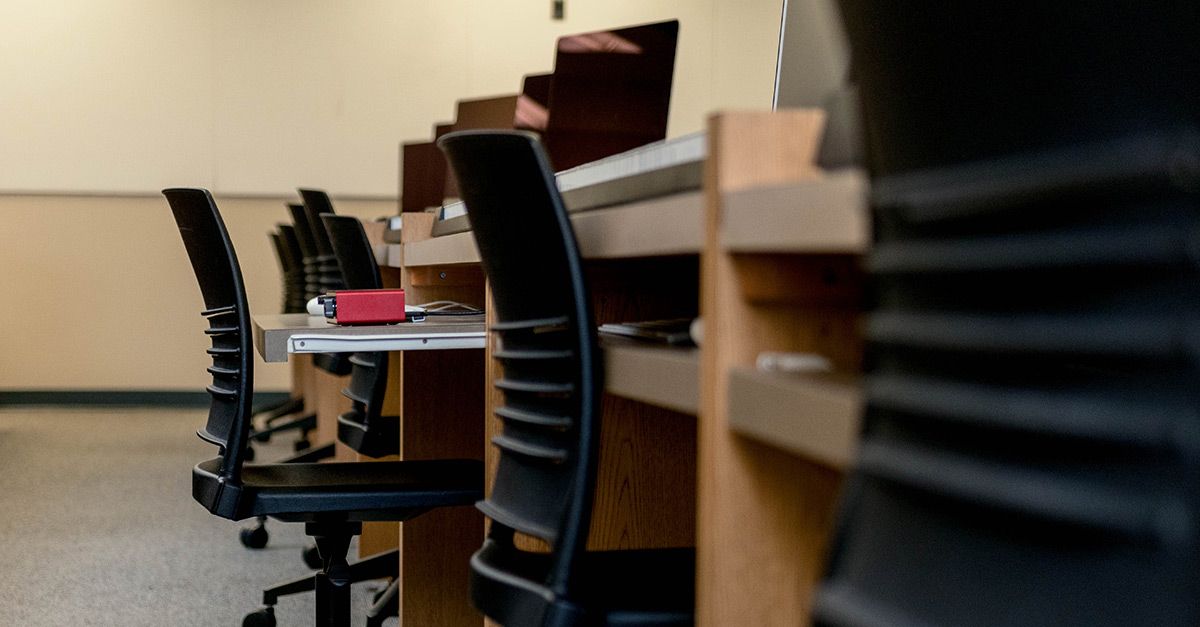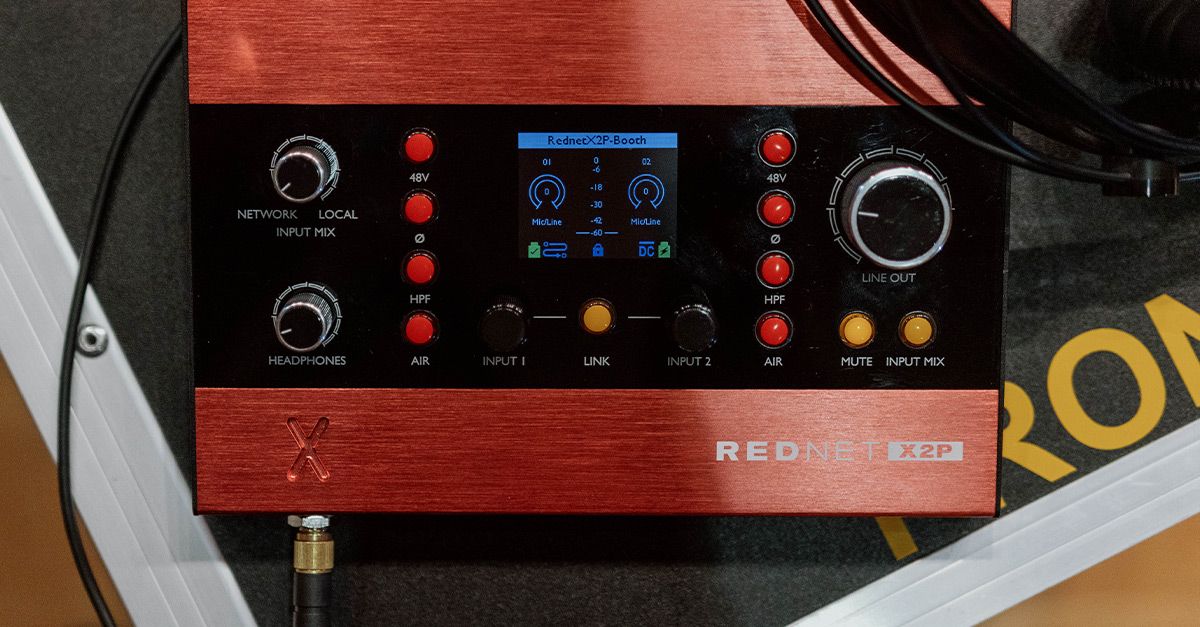University Of Lethbridge Revamps Its Recording Studio Infrastructure With Focusrite RedNet Solutions
University Of Lethbridge
The University of Lethbridge, in Alberta, Canada, has a well-developed music-production education curriculum. The school’s BMus-Digital Audio Arts program has between 200 and 250 students participating at any time, with over 65 of them taking the four-year Digital Audio Arts track. They learn in the school’s two well-equipped production studios, which are also linked to the 240-seat Recital Hall. This well-designed and well-equipped teaching and learning facility caught a snag when one of their existing multi-channel audio converters went down some months ago, and unfortunately it had been discontinued by its manufacturer. That led Chris Morris, Technical Specialist and coordinator for technical services for the school’s Faculty of Fine Arts, to embark on a process that eventually renovated the entire program’s I/O infrastructure, drawing from Focusrite’s RedNet range of Dante®-networked audio converters and interfaces. “The failure of that I/O converter in Studio One is what prompted what became a total infrastructure overhaul,” he says. “And we’re glad it did.”

The Way Forward With AoIP
Morris took the opportunity to research the market for AoIP-based interface solutions for the entire facility. He first decided to go with the Dante AoIP protocol. Although plans were already being made for an update, the early opportunity to upgrade the converters and bridge the primary studios, editing suites and recital hall together was welcome in order to implement AoIP on the existing network infrastructure, bridging digital gaps in a simple and affordable manner. “Dante is a clear frontrunner in the world of AoIP protocols,” Morris explains. “It’s easy to use, scalable and economical, and it has become the de facto standard by top audio manufacturers. These metrics are important when planning for equipment, infrastructure and operations to last 10-plus years.” Then, when choosing new I/O audio interfaces with Dante capabilities for Studio One, a lot of options were considered, but in an educational setting, Morris had some very specific criteria he had to assess. “I had the opportunity to test a lot of different converters from some great manufacturers, and they are all amazing in their own way,” he says. “But in a post-secondary environment, whatever we chose had to be rugged, scalable and budget-conscious. Focusrite RedNet products fit these requirements quite nicely. They checked the boxes in terms of budget, support, scalability and quality, and they consistently out-perform in A/B testing.”

Focusrite RedNet: Modular, Flexible And Scalable
The BMus-Digital Audio Arts program’s studios now have three RedNet A16R 16-channel analogue I/O interfaces, three RedNet HD32R 32-channel HD Dante network bridges, a RedNet 5 Pro Tools® HD bridge and several RedNet X2P 2x2 Dante audio interfaces, and the computer lab was further fitted with 35 Focusrite Scarlett Solo USB interfaces, providing higher audio quality via a higher sampling rate. “We’re using three RedNet A16Rs and two HD32Rs to get their SSL Duality Console into the box and onto the Dante network,” he explains. “The A16Rs allow for 48 analog I/O to be normalled to the channel outputs and monitor inputs of the 48-channel SSL Duality console. This leaves 16 extra Pro Tools I/O open for other Dante-enabled devices, such as guest artist laptops or other DAWs, to be routed as needed. We’re also using HD32R to provide access to a wide range of outboard gear in Studio Two, from anywhere in the facility. The two HD32Rs provide a 64-I/O Dante bridge into our Avid Pro Tools HDX system. In its default setup, the 48 I/O from the console are routed to the first 48 I/O of the Pro Tools I/O. Studio Two also had a simple addition to its primarily analog setup: A single HD32R was added and clocked via loop sync from the two existing Avid HD 16×16 IOs. In this configuration, 16 I/O can be routed to/from the HD32R. This can be particularly useful when wanting to route tracks from Studio One through outboard gear located in Studio Two or recording from other locations.”

Central Control: The Icing On The Cake
In addition, the facility’s Pyramix Suite, attached to the Recital Hall, is outfitted with an X2P interface for monitoring and talkback. A stagebox in the Recital Hall is outfitted with Grace M108 remote preamplifiers and a RedNet 1 for line I/O, all routed via the new distributed Dante network. “The central control of the RedNet devices across our studios and halls via RedNet Control v2 and Dante Controller was simply icing on the cake,” Morris adds. “With a small amount of hardware and a robust integrated AoIP network, we were able to connect all of our existing recording studios, editing suites, and the performance hall. The flexibility afforded to us in this configuration is unparalleled for teaching and production. Now with near unlimited interface opportunities, the creative minds will find interesting ways to utilize it. This is truly the exciting part of a complex system integration.”


